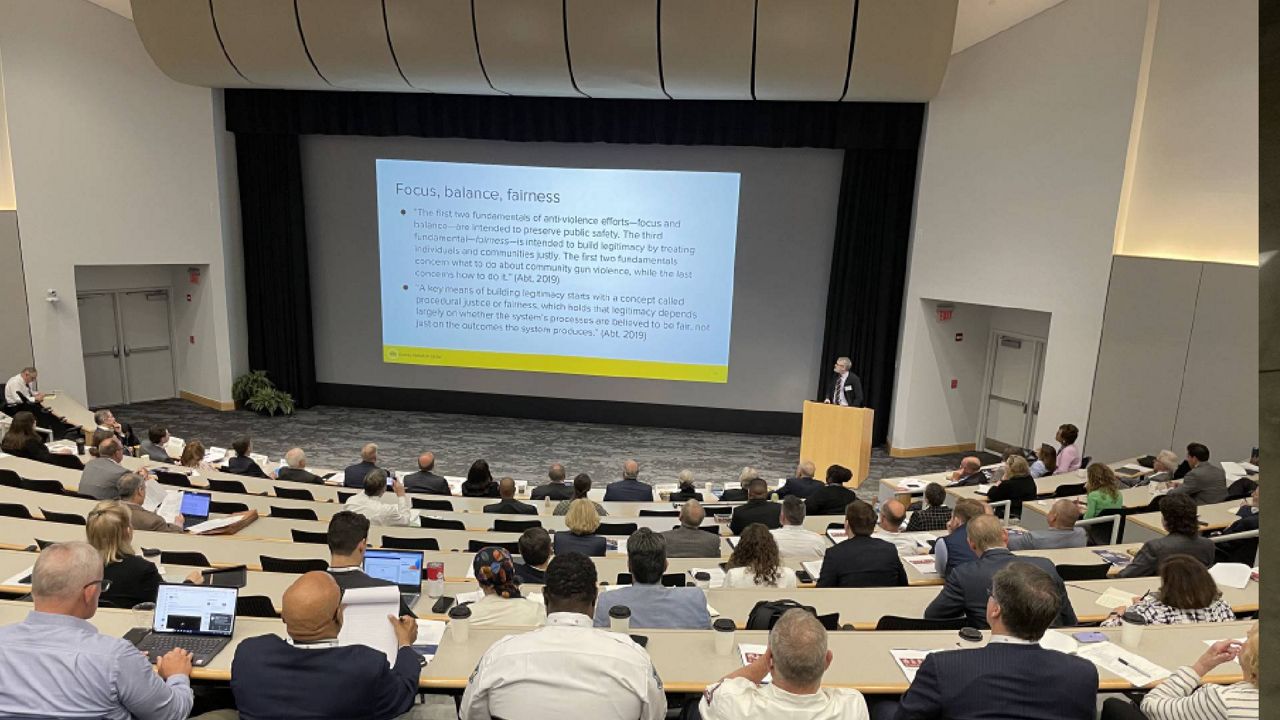ST. LOUIS–Violence reduction is a team sport and something that cannot wait for a moment where everyone reaches agreement on solutions before taking action. That was the message from a nationally recognized expert on anti-violence strategies to a gathering of elected officials, police and others from across the St. Louis region Wednesday at Washington University.
The St. Louis Regional Crime Summit, hosted by the East-West Gateway Council of Governments, featured a review of violent crime and homicide trends by University of Missouri-St. Louis criminologist Richard Rosenfeld and discussion from Thomas Abt, Founding Director of the University of Maryland’s Center for the Study and Practice of Violence Reduction.
The Center has worked with cities like Boston and Knoxville.
Ahead of the summit, Greater St. Louis, Inc. and the Regional Business Council released a report which called for the need for a regional strategy to reduce homicides in the region. A 10% reduction annually was seen as “reasonable and attainable”
Abt’s presentation urged leaders to stay focused and narrow.
“Don't think about, ‘we've got to do something about guns.’ Think about, ‘we have to do something about illegal gun carrying among the highest risk people in the highest risk locations in the region,” he said, with a similar message about drugs.
Addressing leaders in a region famous for its many municipalities and the fiefdoms that come along with it, Abt said the answer to a regional approach in fighting violence isn’t to wait for a “kumbaya” moment.
“What we need is a few residents....a few business owners, local police and local prosecutors who all say in this one area...around this affordable housing project, we're going to change the way we do business. We're going to work together because we might have disagreements but we all share common goals. Build your communities from the inside out, not the outside in.”
St. Louis Mayor Tishaura Jones expects the city will engage with the Center for the Study and Practice of Violence Reduction in addition to its other anti-violence programs. Her hope is that her colleagues in the region will get on board with what she says the city is already doing when it comes to investing in community violence intervention and deterrence programs.
Getting everyone in the same room was a start.
“We are not necessarily unique in terms of the crime problem across the country. My hope is that there will be some collaboration--whatever that entails---whatever's involved in trying to address this. The good news is that we're finally focusing in on this across the board,” said Brentwood Mayor David Dimmitt.
“The first step is identifying there's a problem and now coming up with the solutions to address it. That's where the difficult process comes,” he said.
Abt, who admitted that his presentation was something of an audition, warned his audience that they need to be able to do two things at once. Fighting violence, he said, was not only about addressing social justice concerns or ‘cracking down” on crime.
“We must be willing to push back on the political extremes that are pulling people apart and say pick one or the other. We can't pick one or the other, we must be able to walk and chew gum at the same time. We must be willing to do both,” he said.
Other elements of Wednesday’s summit including panel discussions on prevention, intervention and enforcement issues, were held behind closed doors.



